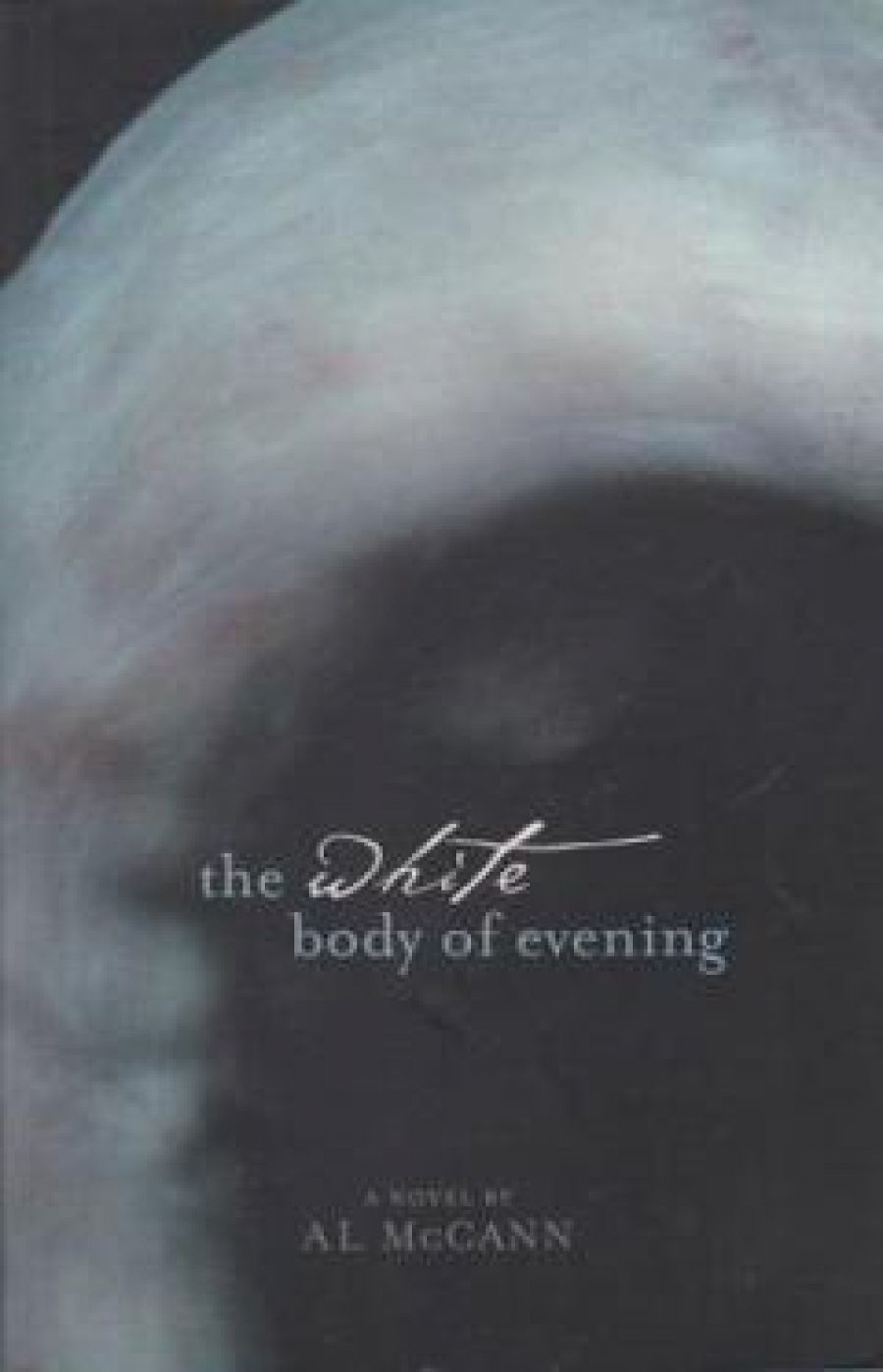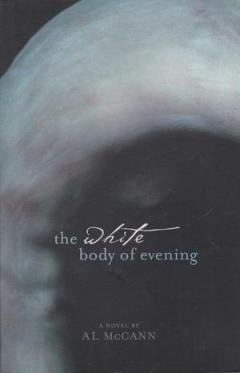
- Free Article: No
- Contents Category: Fiction
- Review Article: Yes
- Article Title: Malodorous Melbourne
- Online Only: No
- Custom Highlight Text:
‘Australia is all an illusion. A trick with smoke and mirrors, performed by demagogues and balladeers.’ So says Paul Walters, one of A.L. McCann’s main characters in this black, sometimes bleak, but very readable tale of Melbourne monstrosity and madness at the turn of the twentieth century. The White Body of Evening is sprinkled with such sentiments, uttered behind chilled hands into penurious South Melbourne, intoned at middle-class tables down the road in St Vincent Place, and wanly ruminated over in the superior cultural environs of Vienna. McCann revels in the detail, and his map of ‘Marvellous Melbourne’ is rich with it: there are the Anatomical Curiosities on exhibit in Bourke Street’s Eastern Arcade; the understated shopfronts on Elizabeth Street, where disreputable booksellers specialise in the subjects of syphilis and sexual pathology; the Little Lonsdale stretch where tawdry prostitutes corrupt white-collar working men; and the numerous alleyways where fishmongers’ refuse washes in the gutters, and cadaverous human specimens occupy shadowy doorways.
- Book 1 Title: The White Body of Evening
- Book 1 Biblio: Flamingo, $27.95 pb, 350pp
- Book 1 Cover Small (400 x 600):

- Book 1 Cover (800 x 1200):

The question of ‘Australianness’ – of how to see ourselves against the rest of the world and what to make of our cultural productions – is the much-worked dough that unites McCann’s miscellaneous ingredients. ‘If I’ve learnt to loathe Australia,’ says Paul’s mother, Anna, in response to her son’s desire to study art in Vienna, ‘I may end up loathing myself more for the self-deception involved in fleeing it.’ Here is the double-edged sword, the catch-22, of Australian experience – being an ‘Australian artist’ might be problematic here, but it is equally problematic elsewhere.
Paul escapes the travesty of Melbourne’s Gallery School, with its platitudinous portraiture and beige-coloured palette, but the Viennese avant-garde has its own shortcomings. If the realism-loving Melbourne public is easily shocked, the doyennes of Viennese cultural life are too eager to celebrate the transgressive. Paul and his sickly translator friend, Ted Klessman, inflict a kind of unintended Ern Malley on the literary élite of Viennese café culture. They present the ravings of Paul’s suicidal father, translated into immaculate German, as an authentic document of the ‘German voice in exile’. ‘A German Rimbaud’, enthuse the Viennese arbiters of literary taste. ‘Or a German Baudelaire!’ Since he lived in Australia, they have no way of viewing Albert Walters except as a ‘savage pilgrim’, writing in isolation from the culture that feeds his genius. ‘Who would have thought it?’ says Paul’s sister Ondine, wryly. ‘All the time my father was a German poet, pretending to be an Australian madman!’
As a writer, McCann moves easily from academia into fiction. The historical detail he employs to illuminate the seedy corridors of Melbourne and Europe never weighs down the story, or in any way asserts itself self-consciously on the page. Nor is his prose difficult; it competently delivers the story, and becomes increasingly relaxed as the narrative progresses – or perhaps as we relax into it. Phrases that pall early on for their vague amorphous strainings (‘trembling darkness’, ‘desperate breathlessness’, ‘luminous with promise and possibility’) recede as the narrative assumes primacy. The only stylistic aspect of The White Body of Evening that bothered me was its shifting points of view between characters, sometimes even paragraph to paragraph. If this does not actually confuse, it does lend a certain remoteness to events and characters. When McCann concentrates on Paul’s journey and experiences in Vienna, he maintains Paul’s point of view throughout, and this makes that section more compelling and satisfying, although we don’t come out of it with greater sympathy for Paul.
McCann’s fin de siècle Melbourne is a place that offers little warmth or well-being. It is either teeming with the grotesque, like an Hieronymous Bosch painting, or stifled by the white cloth of social convention. But it is an interesting place, and The White Body of Evening kindles a reader’s fascination for this salient part of Melbourne’s history. How changed the place is, and yet how easy to imagine a more putrid, animated life taking place in those familiar blue-stoned alleys and well-known Melbourne haunts. Londoners doubtless gain similar geographical satisfaction reading Dickens.


Comments powered by CComment